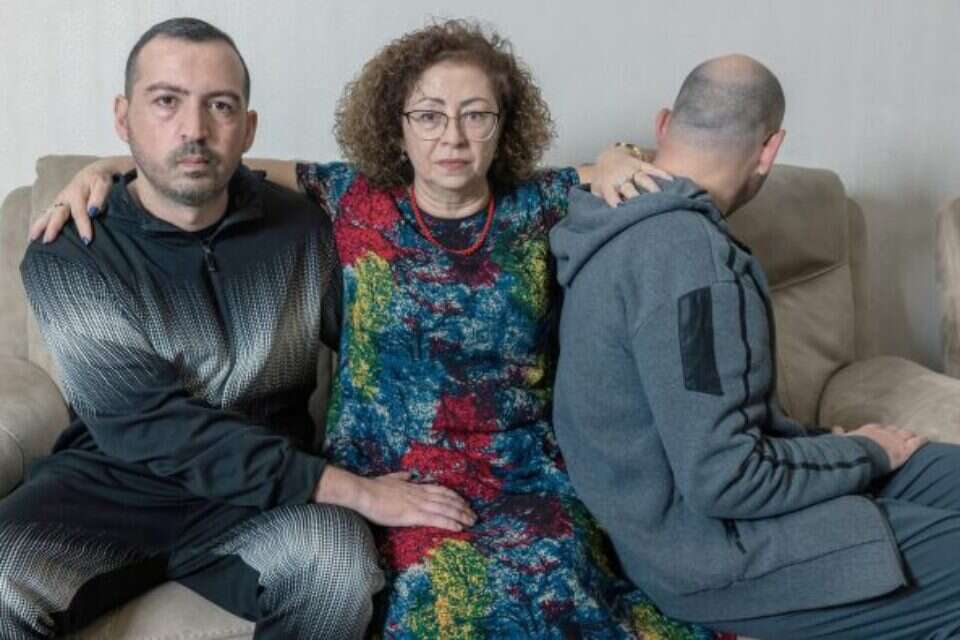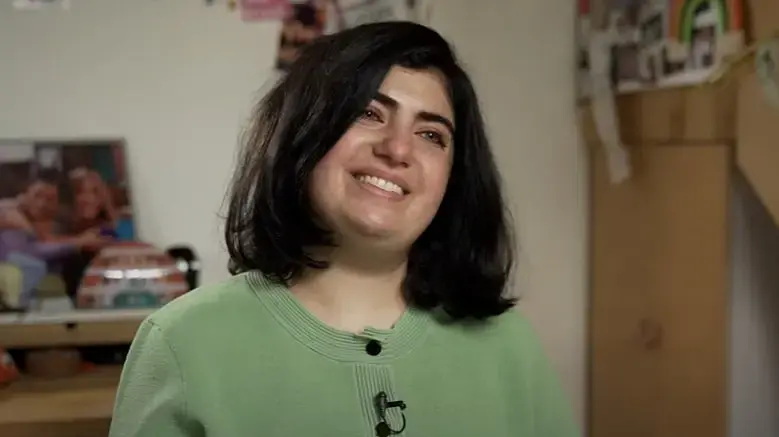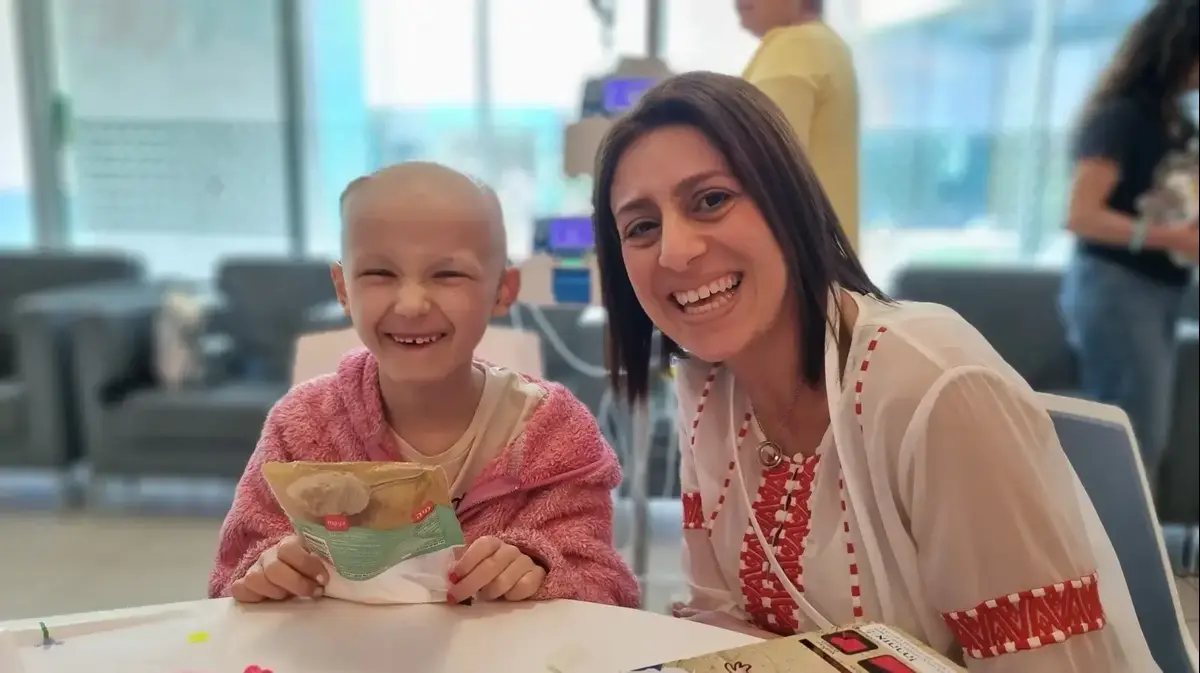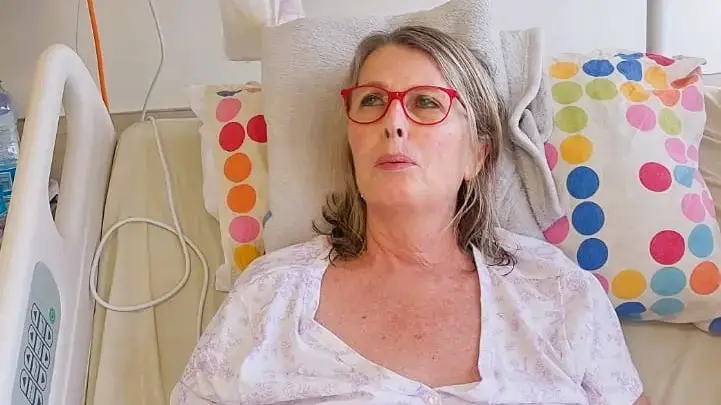For the fourth year now, 80 Huntington's patients and 250 dyskinesia patients have asked the State Medicines Basket Committee to include the medicine "Austedo" in the basket, which will significantly improve their lives.
The estimated annual cost of putting the medicine in the basket is about NIS 30 million.
In the next two weeks, the medicine basket committee at the Ministry of Health is supposed to finish the discussions and recommend to the new government which new medicines should be added to the public medicine basket in 2023 with a budget of about NIS 550 million.
The basket committee has already rated the drug high this year, but due to its high price and the budget allocated for the drug, the patients and doctors fear that it may once again not be included in the basket and that their suffering will continue.
Members of the Medicines Basket Committee at the first working meeting for the year 2023,
"I'm begging you, put the medicine in the basket," writes Rita Forman, mother of two sons with Huntington's disease, to the chairman of the state medicine basket committee, Prof. Dina Ben-Yehuda, and to the members of the committee. "This is a particularly serious disease, and this medicine is the only thing that exists in a world that can facilitate the daily conduct of my two sons without humiliation and pain, and with a little more self-respect and independence.
"As a mother, it is an unbearable pain for me to see my sons suffer from this terminal and difficult disease. I watch helplessly as their health condition worsens week by week while knowing that I have no ability to help them. Very soon we will have no choice and medicine will be the only solution for us, but if It won't be in the medicine basket, we won't be able to afford it."
This shocking and unusual appeal illustrates a little what goes through the patients in Huntington and their families.
This is one of the most severe and cruel genetic diseases that exist, which currently has no other medicine in the world that treats the main problem caused by the fatal hereditary disease.
The drug Ustedo, photo: none
"I felt something was wrong"
According to the testimonies of the doctors and patients, Teva's Ustedo, which is given in pills to be swallowed, is the only medicine developed in the world for the disease and it treats with great success a significant and consistent reduction of the phenomenon of involuntary movements (chorea) in all parts of the body - one of the most difficult problems caused by the disease.
The disease causes severe and incurable problems in walking, eating and speaking and a fatal worsening of the disease, extremely severe physical, mental and social suffering and death at a young age.
Huntington's patients and patients with tardive dyskinesia (which causes movement disorders in mental patients who regularly take psychiatric drugs) demand that this year the basket committee's injustice against them be finally corrected - after four years that the drug has been nominated for inclusion in the basket.
Rita added and wrote in the letter revealed here for the first time: "I immigrated to Israel in 1992 with my two sons when they were still 6 and 12 years old. During all the years I always felt that there was something abnormal in their behavior, but I didn't know exactly what. For them, dealing with life was much more challenging than their friends, and yet they both finished 12 years of school and then enlisted to become soldiers in the army, did full service, and the eldest son got married and had two children. It was only in 2019 that both of my children were diagnosed with the terrible and terminal Huntington's disease.
"My youngest son took it very hard. He went into a deep depression from which he has not been released to this day and is undergoing psychiatric treatment. We are very afraid that my grandchildren will also have the disease and we live under the huge shadow. Since my son was diagnosed, the life of our entire family has been turned upside down and destroyed. This is just not the life I dreamed they would have, and I feel it has dire consequences for our entire family.
"After I was diagnosed, my eldest son went through a divorce. Today my sons live together in a rented apartment in Petah Tikva, the eldest is 42 and the youngest is 37. The eldest son with physical problems, strong involuntary movements throughout the body, difficulty speaking and swallowing, instability that affects functioning The daily basics. In the last six months, his condition has deteriorated significantly. Zohar, my youngest son, also suffers from involuntary movements, mainly in the facial area, which causes him great embarrassment, and his cognitive condition is significantly worsening as well."
The parents of A, a guy on the autistic spectrum, who has been receiving "Ustedo" for the past year, which is helping him a lot, also recently wrote to the medicine basket committee.
According to them, following the taking of the psychiatric drug "Risfederal", severe symptoms of dyskinesia began, which gradually worsened, including chewing movements, head tilts and incessant body movements.
About a year ago he started receiving the medicine and thanks to it he does not suffer from dyskinesia.
"We were saved from the terrible movement disorder thanks to the drug, and we turn to the committee on behalf of all those suffering from the serious disease that does not allow for a reasonable quality of life and has a solution that can save many," they write.
"The intensity of the symptoms decreases"
Rita's touching appeal and the appeal of A's parents are joined by member of the Executive Committee of the Huntington Association, Batia Khodtov, who wrote to the basket committee: "The very small minority of patients who get the medicine are only the lucky ones who have private medical insurance, and from the reports we receive about them it appears that the drug has a significant contribution for them. It allows functional independence to be preserved for a longer time, reduces the intensity of motor symptoms and contributes to the quality of life of the patient and his family. This is the fourth year that we have applied to the committee and we hope that this year our application will finally bear fruit, and the approval of the drug will be a historic step for the benefit of the contestants with a rare, orphaned and incurable disease."
The medicine may help in a significant way", Dr. Nurit Omer, photo: courtesy of the Danieli Foundation
The doctor treating Rita's two sons is Dr. Nurit Omer, director of the Huntington's Clinic at the Ichilov Government Hospital in Tel Aviv. She told Israel Hayom: "Involuntary movements are one of the prominent symptoms of Huntington's disease, and they cause functional difficulty and great suffering for the patients
The existing medicinal response is limited and involves many side effects.
The drug has the potential to reduce them and significantly change the patients' quality of life.
The patient suffers from involuntary movements in the facial muscles that interfere with his speech and chewing and cause social embarrassment, and the medicine may help significantly."
The director of the movement disorders unit and the national center for the treatment of Huntington's disease in Ichilov, Prof. Tanya Gurevich, is one of the senior doctors in Israel who treat these diseases.
This is the fourth year, as mentioned, that she is desperately calling on the basket committee to approve the drug.
"Unfortunately, in Israel we cannot offer 'Ustado' to people with Huntington's and dyskinesia because it is not included in the medicine basket, despite attempts to add it to the basket in recent years," she told Israel Hayom.
"The neurologists in Israel are investing great efforts in the search for any effective treatment option that can provide the best response, as far as possible, to people with these diseases, and until such time there is one - it is not accessible to patients through the medicine basket, which creates great frustration among the patients, their families and the medical teams, as one".
"Unfortunately, in Israel we cannot offer 'Ustado' to people with Huntington's and Dyskinesia", Prof. Tanya Gurevich, photo: courtesy of the Danieli Foundation
The discussions continue
Dr. Diana Gott, a senior psychiatrist at the Rambam government hospital in Haifa, joins the call of the parents to the basket committee: "I fully support the treatment of Ostedo for patients who are diagnosed with Tardiv. An example of successful treatment with Ostedo is the case of a patient who was treated for resistant depression using Several antidepressants without success, and later augmentation (addition) was made with aripiprazole, which greatly contributed to the improvement of depression. But after about a year, the treatment caused a severe delay in the patient with involuntary chewing movements of the tongue and mouth, and swaying movements in the spine that caused great suffering and severe pain. The treatment at Ustado contributed for a very significant improvement, and now the patient is in the process of increasing the dose, which in my estimation will further contribute to the improvement of the situation.
"It should be noted that during the dose increase, the patient had to stop the treatment for a few days because of the difficulty of obtaining the drug in the pharmacies and because of the high price of the drug. Following the interruption, there was a marked worsening of Tardive. After the treatment was resumed, there was a significant improvement within days. The treatment at Ustedo contributes in a very significant way to the patient mine and prevents them from much suffering."
The response of the Medicines Basket Committee: "The committee has not yet finished the discussion phase, and the intensive discussions continue even more intensively. The wish and desire of all of us: to include the maximum of technologies for the benefit of the public in Israel."
were we wrong
We will fix it!
If you found an error in the article, we would appreciate it if you shared it with us














